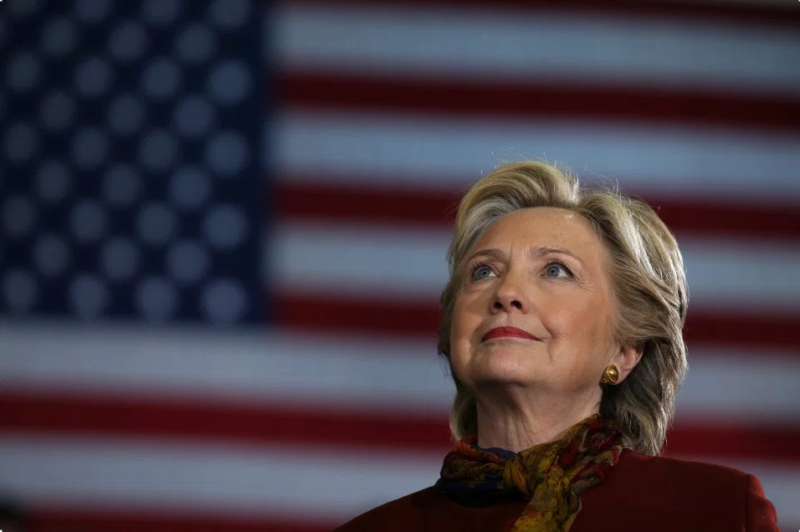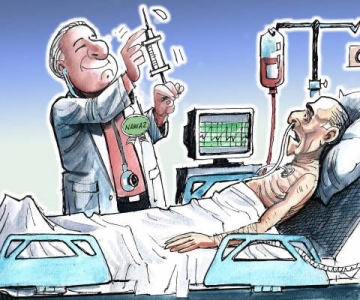The killing of Osama bin Laden is another hurdle to tackle, and we are in a critical moment of another reevaluation of the Pakistan-US relations, just a few months after the close of the Raymond Davis saga.
Pakistan-US relations are subject to global scrutiny and elude a definitive assessment due to the nature of a partnership scarred by history, competing interests and unflattering public opinion. Recent surveys such as the BBC World Service Poll indicate that most Westerners perceive Pakistan negatively, while opinion polls, such as the PEW in Pakistan, confirm that the US is neither trusted nor liked by a sizeable majority of its citizens. In this game the media can play the role of a mediator of sorts and allow for the flexibility to overcome the explosive faultlines — both literally and figuratively — between the two countries.
In this context, the death of OBL may have provided another excuse for the growing anti-Americanism to mobilise public opinion against a mutually constructive bilateral relationship. The clandestine raid by US forces was met by anger and scepticism in Pakistan. Pakistan’s right-wing media has as usual condemned the US. Even with a deep mistrust on both sides about Pakistan’s position regarding Afghanistan, the ISI and CIA had always been cooperating, except now.
The general sentiment is that the Americans were obviously hankering after exclusive credit. A high-ranking security official summed up the bitterness in the military saying, “What they (Americans) did was brazen betrayal and treachery on their part.” In their attempt to gain political credit for eliminating bin Laden, the United States “has hugely discredited Pakistan and its military establishment”, he said (The News, May 27, 2011).
Pakistan’s strategic importance for the US will not decrease despite the elimination of OBL. Pakistan’s cooperation had served US interests well in the past; during the Cold War and US rapprochement with China. The US interest in ensuring the security of Pakistan’s nuclear arsenal will remain as strong as ever. After the OBL killing, the US toned down its suspicions of Pakistani complicity. Hillary Clinton in her recent visit to Pakistan has ruled out the possibility of any complicity, but has continued to stress the need for a thorough enquiry regarding any possible complicity at the lower levels.
The Pakistani Army and the ISI do not find any difficulty in accepting this demand. The US has also agreed to downsize the presence of US intelligence and Special Forces. In fact it agreed to make a small reduction in the number of personnel posted in Pakistan even before the Abbottabad raid in response to a Pakistani demand after the January incident involving Raymond Davis. Then again, the US obviously feels confident that a further reduction should not affect its capability on the ground in Pakistan.
While Pakistan and US relations at a diplomatic level appear strained publicly, many suspect that secret negotiations were underway between the intelligence communities in both countries throughout. In the context of the fledgling democratic process in Pakistan, greater transparency would make the task of a meaningful engagement and finding workable solutions more likely.
In addition, the United States needs to recognise some imperatives vis-a-vis Pakistan. Even though Secretary Clinton called for Pakistan to avoid “anti-Americanism and conspiracy theories” while dealing with ‘internal problems’, it is because of internal problems that an outside enemy is blamed. And even with public statements backed by public officials against drone attacks, new revelations about the precision and the expansion of drone strikes by the military establishment have changed the narrative.
The US needs to consider the following: First, Pakistan’s security establishment will not be satisfied unless the Kashmir question is addressed by the architects of US foreign policy. President Obama during his election campaign highlighted ‘Kashmir’ but nothing has been done. Most Pakistanis expected Obama to mediate on this issue. However, India has precluded any such external intervention thereby, making the task of the Obama administration even more problematic.
Second, US support to the civilian government suffers from a policy hiatus as well as inefficient disbursement of ‘aid’ meant to promote democracy, governance and development. Two years since the approval of the Kerry-Lugar legislation, only a fraction ($300 million) of promised assistance ($3 billion) has been delivered. Distribution has gone through USAID channels, which have bureaucratised the essential need for flexibility and political ownership of aid in Pakistan. Without broad-based ownership and efficient delivery modalities of US assistance, its results at best would remain tentative.
Similarly, the obsession of working with the Pakistan Army continues and the various rounds of strategic dialogues conducted with army leadership indicate that the civilian government has been recognised as secondary in the power reality of Pakistan. The US must support and strengthen Pakistan’s civilian government and resist making direct deals with the Army.
Third, the continuation of drone strikes, resulting in many civilian casualties, helps nobody. It may achieve the short-term target of eliminating a group of terrorists, but leaves profound after-effects that will stymie the future trajectory of US engagement in the region. Drone strikes need to be reviewed and their efficacy should be re-examined as to how the collateral damage is creating more recruits for the anti-US terror networks. Instead, the US must find a way to reassure Pakistan that India would not emerge as a hegemonic power in the region; and this may act as an incentive for Pakistan to take care of extremists in its fold.
On the Pakistani side, the dangerous game played by the security establishment in whipping up passions against the US is detrimental to Pakistan’s future interests. Anti-American rhetoric needs to be abandoned in favour of a more realistic articulation of Pakistan’s long-term national interests such as economy, trade and social development in marginalised regions of the country.
The lessons of history are clear: Pakistan cannot fight the menace of terrorism alone. It functions in a region with too many competing interests and therefore, engagement with other stakeholders such as India, Iran and China is essential. In fact, Pakistan is in a unique position to facilitate a regional dialogue on terrorism and provide inputs for an Afghanistan settlement in the wake of the US withdrawal from the country.
It is in everybody’s interest that the situation in neighbouring Afghanistan, which is keeping the US in the region, be resolved as soon as possible through a process, which accommodates multiple interests and uses bargains and diplomacy over drones and smart bombs.
The writer is a policy adviser based in Lahore.



